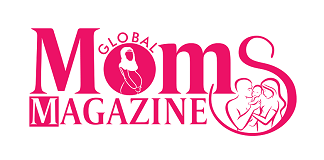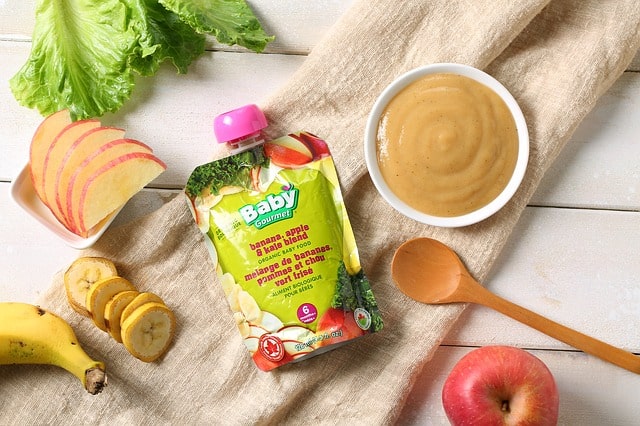When you’re a parent, you undoubtedly want the absolute best for your baby. But new parents often struggle when it comes to choosing the healthiest feeding options. Baby food packaging often claims the foods are wholesome and nutritious, but it’s essential to look at the actual ingredients.
Whether using store-bought or homemade baby food, you can find healthy options for your baby. However, packaged baby food can contain lots of preservatives, artificial flavors, and extra sugar. Still, making homemade baby food isn’t always the most convenient for busy parents. Therefore, it’s about carefully weighing your options, considering your available time and budget, and reading ingredient lists closely.
The recommendation of the American Academy of Pediatrics (AAP) is for babies to get all their nutrition via breastfeeding until 6 months old. That information aside, what’s best when your child is ready for solid foods? Store-bought or homemade baby food?
Store-Bought vs. Homemade Baby Food
If you’re on the fence about whether to feed your baby store-bought or homemade baby food, it’s worth looking at the pros and cons. Both options have upsides and downsides, so ensuring you understand them can help you make an informed decision.
What’s also important to remember is there’s no right or wrong answer. Everyone has unique situations and parents their children differently. Therefore what makes sense for one family might not work at all for another.
Read more: Baby food packaging market size, share and trends
You can find healthy store-bought options for baby food. According to the United States Department of Agriculture (USDA), the most vital part of choosing your baby’s food is ensuring it has a proper number of essential nutrients and that they eat the correct amounts of food.
Pros of Store-Bought Baby Food
Store-bought baby food comes with several advantages. And as long as you stay aware of ingredients and packaging, you can find some excellent options for healthy baby meals.
- Convenience —
There’s no denying store-bought baby food is super convenient. Making your own food typically requires steaming, pureeing, and other prep work. And when you’re a new parent, every second is precious, so you might prefer spending your time on other tasks.
- Simplicity — Knowing exactly how to make baby food, so it’s what your baby will eat, can be challenging. Babies can handle different textures at different stages. Store-bought baby food packaging usually features labels indicating what age it’s best for. For example, 6 months, 9 months, etc.
- It Lasts Longer — Homemade baby food usually only lasts for a few days and needs refrigeration. You could also opt to freeze it to last a little longer. But store-bought baby food has a much longer shelf life. Plus, you often don’t need to refrigerate it until it’s open, so it’s easier to store.
Cons of Store-Bought Baby Food
Before deciding on store-bought baby food, at least be aware of the cons. When you know what they are, you can make better choices when shopping to help negate some of the drawbacks.
- Expensive — You’ll pay for convenience. Jarred baby food, pouches, crackers, and puffs are easy meals and snacks, but they add up. All that extra baby food packaging and prep work equals a bigger price tag.
- Less Control Over Ingredients — When buying pre-made baby food, you get what you get. So, your flavors and choices are limited.
- Extra Waste — While some baby food packaging is recyclable, a lot of baby food pouches and jars end up in garbage cans. Plus, the baby food packaging itself can pose potential problems. For example, certain plastic contains dangerous chemicals that can end up in your baby’s food.
Pros of Homemade Baby Food
If you have the time, making your own baby food can be a lot of fun. Plus, it has lots of benefits.
- More Control Over Ingredients — When you make your own baby food, you know exactly what’s going in it. You can also experiment with a wider variety of ingredients and combinations that you might not get in store-bought options.
- You Can Save Money — As previously mentioned, store-bought baby food can cost a pretty penny. Making your own can save money.
- Less Waste — Making your own baby food can be more environmentally friendly. You won’t have all the baby food packaging that you end up with when buying store-bought versions.
Cons of Homemade Baby Food
Homemade doesn’t always mean better. It also doesn’t necessarily mean healthier. For example, cookies and cakes don’t suddenly become healthy just because you make them at home.
- It Takes Time — You need to schedule extra time for baby food prep when you make your own. You’re not just opening a jar or pouch. You’re chopping, steaming and softening, pureeing, portioning, and storing or freezing.
- Shorter Shelf Life — You can keep unopened baby food jars for a year. When you make your own, you need to use it within a few days. Although, you can stretch out its life span to a couple of months by freezing. A great way to freeze homemade baby food is in ice cube trays stored inside freezer-safe bags.
Frequently Asked Questions About Baby Food Packaging
Which material is most commonly used for packaging baby foods?
The majority of store-bought baby food is packaged in glass jars, plastic containers, or pouches consisting of plastic and foil layers. Glass is recyclable. Still, it’s heavier and can break easily. You also need to consider the lid liners might still contain plastic.
Plastic is convenient but can contain harmful chemicals that can seep into the food if not BPA-free. Pouches typically aren’t recyclable; plus, relying mainly on pouches can cause some developmental delays in your baby’s feeding skills.
What baby food material is best?
When choosing materials for storing baby food, some good options are stainless steel, glass, food-grade silicone, and bamboo. Make sure items are dishwasher safe for easy cleaning and sanitizing.
Can I make my own baby food pouches?
Pouches are undeniably a super-easy way to feed your baby on the go. But buying store-bought pouches has its drawbacks, including extra waste and a higher price tag.
You can purchase refillable food pouches that allow you to create your own on-the-go baby food combinations. Simply prepare your homemade baby food as usual and place the puree in a pouch. And since they’re refillable, you’re not adding more trash to a landfill.
Written by STACYTR

